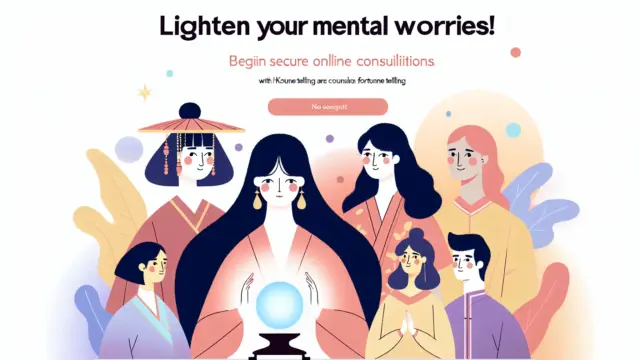Feeling anxious about love can be a common experience, and it’s something that many of us face at different stages in our relationships. Whether you’re just starting to date someone or you’ve been together for a while, those feelings of uncertainty can creep in and make us question our bond. It’s important to recognize that these anxieties often stem from deeper issues, and understanding them is the first step toward building a stronger, more comfortable relationship.
In the journey of love, communication plays a crucial role in easing anxiety. When we share our thoughts and feelings with our partner, it helps to eliminate misunderstandings and build a solid foundation of trust. This article will explore ways to foster open dialogue, allowing both partners to feel heard and valued, which can significantly reduce anxiety in the relationship.
Another essential aspect to consider is the importance of self-care and personal growth. Taking care of your mental health and nurturing your self-esteem can empower you to approach love with a more confident mindset. It’s not just about the relationship with your partner; it’s also about nurturing the relationship you have with yourself.
Join us as we delve into practical tips and insights to help you navigate the waters of love with less anxiety and more confidence. Together, we can explore how to create a fulfilling partnership that thrives on trust, communication, and mutual understanding.
- Explore the causes of anxiety in romantic relationships
- Learn effective communication strategies to enhance your bond
- Discover self-care habits that support personal growth and mental well-being
What Lies Behind Anxiety in Love?
Understanding the Causes of Anxiety
Feeling anxious in love often has deeper roots than we might initially realize. It can stem from past experiences, insecurities, or even unrealistic expectations we place on ourselves and our partners. Sometimes, the fear of vulnerability makes us hesitant to fully invest in a relationship, leading to feelings of anxiety that can overwhelm us.
Moreover, our upbringing and previous relationships can shape our views on love and intimacy. If we’ve experienced heartbreak or betrayal in the past, it’s natural to carry those feelings into our current relationships. Acknowledging these underlying fears is essential for understanding the anxiety we feel in love.
By exploring these causes, we can begin to identify patterns in our thoughts and behaviors that contribute to our anxiety. This self-awareness is the first step towards breaking free from those cycles and fostering healthier, more fulfilling relationships.
- Identify personal triggers that contribute to feelings of anxiety.
- Reflect on past experiences that may influence your current relationship.
- Consider seeking professional help if anxiety becomes overwhelming.
Psychological Effects of Relationship Anxiety
The psychological toll of anxiety in love can be quite significant. It often leads to a cycle of self-doubt and fear, making it challenging to fully engage with our partner. When we’re caught in a web of anxiety, our ability to communicate openly can diminish, creating misunderstandings and distance between partners.
Additionally, anxiety can manifest in physical ways, such as increased heart rate, insomnia, or even headaches. These symptoms can further exacerbate feelings of worry, making it feel impossible to find relief. It’s crucial to recognize that anxiety is not just a mental struggle but a holistic experience that affects our entire being.
Building awareness of these psychological effects allows us to address them head-on. By learning effective coping strategies, we can manage our anxiety and cultivate a more positive outlook on love. Remember, it’s okay to experience anxiety; what matters is how we respond to it.
- Acknowledge that anxiety can affect both mental and physical health.
- Practice mindfulness techniques to ground yourself in the present moment.
- Engage in open conversations with your partner about your feelings.
The Importance of Communication with Your Partner
How to Encourage Open Dialogue
Creating an open dialogue with your partner is key to overcoming anxiety in love. It starts with setting aside dedicated time to talk, free from distractions. When both partners feel they can express their thoughts without interruptions, it builds a safe space for communication. You might find it helpful to establish regular check-ins where you can share your feelings and experiences. This practice not only fosters understanding but also strengthens your emotional connection.
Another effective technique is to use “I” statements when discussing feelings. For example, instead of saying “You make me feel anxious,” try “I feel anxious when we don’t communicate openly.” This approach minimizes blame and encourages a more constructive conversation. Additionally, actively listening to your partner’s concerns can go a long way in making them feel valued and respected.
Remember that it’s okay to have different perspectives. Disagreements can arise, but tackling them together can lead to growth and compromise. By practicing empathy and patience, you’re showing your partner that their feelings are important, which can significantly reduce anxiety for both of you.
- Set aside distraction-free time for conversations.
- Use “I” statements to express feelings without blame.
- Actively listen to your partner’s concerns to show respect.
The Comfort of Sharing Emotions
Sharing emotions with your partner can be incredibly comforting and therapeutic. It allows both of you to process feelings together, reducing the weight of anxiety. When you express your thoughts, it often leads to mutual understanding, which can help both partners feel less isolated in their experiences. The act of sharing can also reinforce your bond, making it easier to navigate challenges together.
Moreover, vulnerability can be a powerful tool in relationships. While it may feel daunting to open up, showing your true self can deepen intimacy and trust. When you allow your partner to see your fears and anxieties, it encourages them to do the same. This reciprocal sharing creates a safe haven where both partners can feel secure in their relationship.
Finally, don’t underestimate the power of laughter and light-hearted moments during these conversations. Humor can be a great way to ease tension and remind each other that you’re in this together. Finding joy in the process of sharing can transform anxiety into an opportunity for connection and growth.
- Share feelings to process emotions together.
- Embrace vulnerability to deepen intimacy and trust.
- Use humor to ease tension and strengthen your bond.
Steps to Build Trust
Keeping Small Promises
Building trust in a relationship often starts with the little things. When you make a promise, no matter how small, following through shows your partner that you’re reliable. It could be as simple as remembering to call when you say you will or following through on plans you’ve made together. These small commitments can accumulate over time, creating a foundation of trust that helps alleviate anxiety in love.
Moreover, acknowledging when you’ve kept a promise can reinforce this bond. Celebrating these small victories together can enhance your emotional connection and reduce feelings of insecurity. Trust is built gradually, and every promise kept is a step toward a stronger partnership.
- Make commitments that you can realistically keep.
- Celebrate the small victories together to strengthen your bond.
- Consistency in actions helps to build a reliable foundation.
Understanding Each Other’s Values
Understanding each other’s values is another crucial step in building trust. Every individual has different beliefs and priorities that shape their approach to love and relationships. Taking the time to discuss what matters most to both of you can help bridge gaps and foster a deeper connection.
Start by asking open-ended questions about your partner’s values and beliefs. This could involve discussions about family, career aspirations, or even what love means to each of you. The more you learn about each other, the better equipped you’ll be to navigate challenges together. When both partners feel understood, the anxiety that often arises from differences can diminish.
Additionally, recognizing and respecting these values can strengthen your bond even further. It’s important to create a space where both of you feel safe to express your thoughts without fear of judgment. This openness not only reduces anxiety but also encourages growth within the relationship.

If you’re interested in deepening your understanding of relationship dynamics, you might find value in our article titled Unlocking Men’s Psychology: Tips to Solve Your Relationship Woes!. This piece explores how understanding male psychology can enhance communication and help resolve common relationship issues, aligning perfectly with the themes of trust and understanding discussed here.
- Discuss your core values to deepen understanding.
- Create a safe space for open conversation without judgment.
- Recognize and respect each other’s beliefs to strengthen trust.
Self-Care and Personal Growth
Habits to Maintain Mental Health
Taking care of your mental health is essential, especially when navigating love and the anxieties that can come with it. Engaging in regular self-care activities helps to create a buffer against stress and boosts your resilience. It’s about finding what works best for you and making it a consistent part of your routine.
Try incorporating mindfulness practices such as meditation or journaling into your daily life. These activities can help you process emotions and reflect on your thoughts, reducing anxiety levels. Additionally, physical exercise is a powerful tool for maintaining mental health. Whether it’s going for a walk, hitting the gym, or joining a dance class, moving your body releases endorphins, which can elevate your mood and combat negative feelings.
Furthermore, establishing a sleep routine can significantly impact your mental well-being. Quality sleep allows your mind to recharge and cope better with daily stressors. Aim to create a calming bedtime environment and stick to a consistent schedule to promote restful sleep.
- Practice mindfulness through meditation or journaling.
- Incorporate regular physical activity to boost your mood.
- Establish a calming sleep routine for better mental health.
Ways to Boost Self-Esteem
Building self-esteem is a vital aspect of personal growth that can positively influence your relationships. When you feel good about yourself, it becomes easier to approach love with confidence, reducing anxiety in the process. Start by recognizing your strengths and celebrating your achievements, no matter how small they may seem.
Another effective way to enhance self-esteem is through positive self-talk. Challenge negative thoughts and replace them with affirming statements about yourself. For instance, instead of thinking, “I’m not good enough,” remind yourself of your unique qualities and what you bring to the table in a relationship. Surrounding yourself with supportive friends and engaging in activities that bring you joy can also create a nurturing environment for self-growth.
Taking the time to invest in yourself, both emotionally and mentally, will not only help alleviate anxiety but also enrich your relationships. When you prioritize your self-esteem, you’ll find it easier to communicate openly and build trust with your partner, setting the stage for a more fulfilling love life.
- Recognize and celebrate your strengths and achievements.
- Practice positive self-talk to counter negative thoughts.
- Surround yourself with supportive friends and engaging activities.
Summary
Feeling anxiety in love is a common experience that many people encounter throughout their relationships. Recognizing that these feelings often arise from deeper-rooted issues is crucial. By understanding what triggers your anxiety and communicating openly with your partner, you can create a supportive environment that fosters trust and connection. Additionally, prioritizing self-care and personal growth cultivates a positive mindset, allowing you to navigate love with confidence.
As you work through your feelings of anxiety, remember that it’s essential to celebrate small victories in your relationship. Building trust takes time, and every effort counts. Incorporating mindfulness practices and maintaining a healthy lifestyle can significantly impact your mental well-being, further alleviating anxiety in love.
Ultimately, love is a journey that requires patience and understanding from both partners. Embracing vulnerability and sharing emotions can strengthen your connection and transform anxiety into opportunities for growth. The key is to approach your relationship with compassion, both for yourself and your partner.
- Recognize that anxiety in love often stems from deeper issues and past experiences.
- Foster open communication with your partner to build trust and reduce misunderstandings.
- Prioritize self-care and personal growth to approach love with confidence and resilience.
We’d love to hear your thoughts! What strategies have you found helpful in overcoming anxiety in your relationships? Please share your experiences in the comments below.








Comment